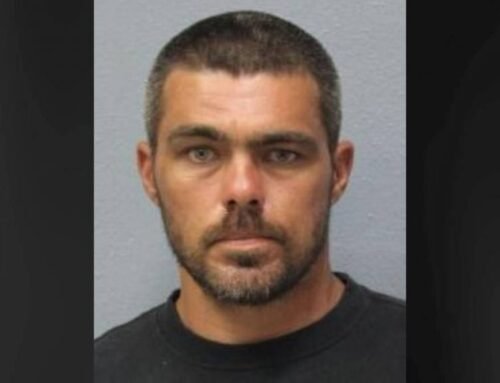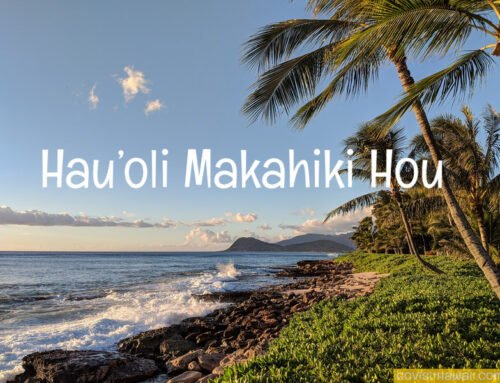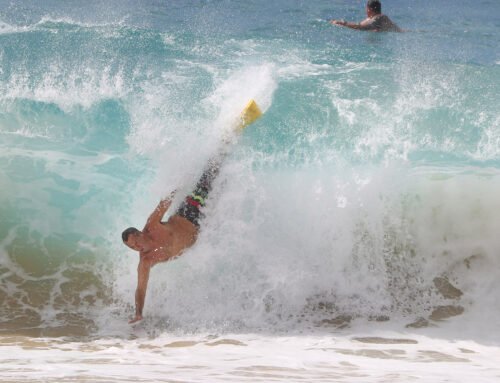A state water official championed by Native Hawaiian and environmental activists because of his stance on water rights issues before and during the Maui wildfires resigned his position this week with no public warning or explanation.
Kaleo Manuel’s departure as deputy director of the state Commission on Water Resource Management comes just weeks before a legislative session during which rebuilding Lahaina – and supplying water for those hoping to replace their homes and buildings – is expected to be a critical issue.
The Department of Land and Natural Resources declined to comment on Manuel’s departure or release Manuel’s resignation letter. Instead, the department forwarded a request for comment to Manuel, who did not respond.
Gov. Josh Green also declined to comment beyond a brief statement.
“I wish him well, however we have enormous work to do on housing, especially for the people of Lahaina, which will require a thoughtful CWRM director that can help us with that,” Green said. “I will choose someone who can help me assure that housing is a right for all local people in Hawaii.”


Hawaii Sen. Lorraine Inouye, who chairs the Senate Water and Land Committee and was the one to publicly announce news of his resignation in a press release this week, said Manuel had been a good administrator who was well liked by commission staff.
She said Manuel had told her he was resigning, but she said she didn’t ask him why.
“He did say, ‘I don’t want to be an obstacle,’” to the administration during the legislative session, she said.
Jonathan Scheuer, a former chairman of the State Land Use Commission and co-author of the book “Water and Power in West Maui,” said, “Kaleo accomplished more than any deputy to the Water Commission since it was created in 1987.”
“My hope going forward is that the Green administration will endeavor to find someone who brings that deep knowledge of water issues and skill set,” Scheuer said.
Among other things, Scheuer cited Manuel’s work designating West Maui as a Water Management Area, which places strict regulation on the owners of water sources, such as wells. Manuel also worked to ensure water was not diverted from Hawaii streams to benefit large landowners to the detriment of aquatic life and users like taro farmers, Scheuer said.
Despite such accolades, Manuel was at times a divisive figure within the Green administration, according to officials who spoke on the condition of anonymity, citing confidentiality surrounding public employee personnel issues.
A Note On Anonymous Sources
Perhaps most bothersome to administration insiders, interviews with administration officials indicate, was Manuel’s work style, which included acting proactively and autonomously in an administration in which he started as an outsider.
A holdover from the administration of Green’s predecessor, Gov. David Ige, Manuel was kept on in the deputy director position in part because of politics. Green had nominated Dawn Chang, a former Native Hawaiian community organizer and deputy attorney general, to be the chair of the Board of Land and Natural Resources and as such director of the Commission on Water Resource Management.


Inouye said she had heard that Green wanted to get rid of Manuel. But having heard universally positive reports about the deputy director, Inouye made Chang’s confirmation contingent on keeping Manuel on board.
“I already had vetted his work,” she said. The reports were “very positive from those working at DLNR.”
Green Vetoed Bills Giving Water Commission More Power
While the new administration was transitioning into power, lawmakers began considering two bills to expand the power of the Commission on Water Resource Management. One measure would have granted the commission authority to declare water states of emergency and expand powers of the director and deputy during such times.
Ernie Lau, manager and chief engineer of the Honolulu Board of Water Supply, testified that the bill contravened the intent and purpose of the state water code relating to water management areas.
Maui County water officials testified that the “bill is unnecessary and would effectively bypass procedural and substantive due process considerations and protections currently in the State Water Code.” Maui Mayor Richard Bissen said the bill would “preempt and usurp” emergency powers of mayors and the governor.
The other measure would have dramatically increased the maximum fines the commission could impose for violations of the water code from $5,000 to $60,000. In addition, each day a violation occurred or persisted would constitute a separate offense. The bill proposed to give the commission discretion to decide the amount of the fine based on criteria including “matters as justice may require,” which the bill left it to the commission to define.
Lawmakers passed the bills, but Green vetoed them, even though DLNR had testified in support of both. In fact, Inouye noted that the emergency powers bill had been submitted as part of the governor’s package.
“That bill that the we passed that the governor vetoed was an administration bill,” she said. “That’s what we were kind of baffled about when he vetoed the bill.”
According to two officials, it appeared to Green that Manuel had maneuvered to get the bills passed while the new administration, just weeks in office when the legislative session started, was still transitioning into power.
Inouye said the fault lies with Green if his administration supported bills he ultimately saw fit to veto.
“I blame the governor for not understanding,” she said.


The impression that Manuel was not willing to cede authority to higher-ranking administration officials arose again during the Maui fires.
The issue, which has been widely reported on since the Aug. 8 fire that destroyed much of Lahaina, involved the request by the developer of a wealthy residential community on the hillside above Lahaina to allow the community to divert a stream to fill a reservoir with water in case the water was needed to fight the fire.
According to correspondence between Manuel and Glenn Tremble, an executive with West Maui Land Co., Tremble asked the commission for permission to divert the water around 1 p.m. The commission’s response was that West Maui Land needed to check with the Maui Fire Department and a downstream taro farmer, which Tremble said the company had tried unsuccessfully to reach.
By the time the commission approved diverting the water, around 6 p.m., an access road to the equipment used to divert the water was engulfed in flames, Tremble wrote.
After the incident, Manuel was reassigned to another job within DLNR pending an investigation and quickly became a cause celebre.
While Tremble argued the water could have been used for “fire suppression,” essentially using sprinkler systems to wet the ground in the luxury neighborhood to prevent the fire from spreading there, Manuel’s supporters derided the idea of fire suppression as rich people wanting to water their lawns.
Many noted that the community’s reservoir wasn’t connected to Lahaina’s fire hydrants and that it was too windy for firefighting helicopters to use the water in firefighting sorties. They accused West Maui Land of using the fire as an excuse to hoard water, a craven act of “plantation disaster capitalism.”
Long-running debates over water rights on Maui and the practice of plantations hogging water at the expense of taro farmers made national news. A September meeting of the water commission was dominated by calls to reinstate Manuel. The Maui County Council passed a resolution supporting Manuel. And by October, Manuel was back in his position.


What concerned Green administration officials most about the West Maui Land incident, officials said, was not the delay in releasing water that couldn’t have been used in Lahaina’s hydrants. Rather, they said, it was that he did not engage his supervisor, Chang, adequately on water decisions on the day of the fire. Their belief was that collaboration was necessary in crises for a comprehensive response.
DLNR Director Will Choose The Water Commission’s Next Deputy Director
More recently, Manuel had been absent from meetings of an executive advisory committee on water issues established by Luke Meyers, the state’s disaster management advisor. In a statement, Meyers said the DLNR chair has always been invited and attended. Manuel attended several meetings with Chang or on her behalf, Meyers said.
“When in attendance, which was virtual, he was engaged,” Meyers said.
But recently Manuel has not attended the meetings, which was seen as one of a number of signs that he had become disaffected.
Inouye said she hopes Chang acts quickly to replace Manuel.
Under the water code, Chang gets to select her deputy, who must be confirmed by the seven-person commission. Inouye noted that while the Senate does not have a vote in confirming the commission’s deputy director, it does have a say in confirming five appointees who make up the commission along with Chang and the state health department director.
And, she said, “I am pleased that the current commission members will probably be the ones that will be making that decision.”
Civil Beat’s coverage of Maui County is supported in part by grants from the Nuestro Futuro Foundation.







Leave A Comment